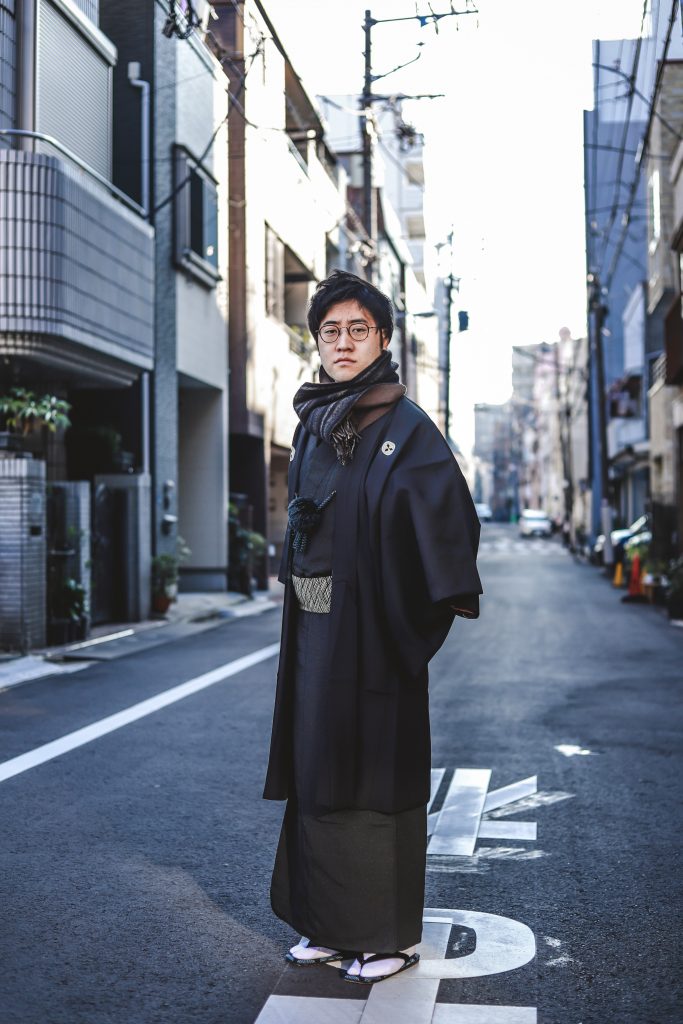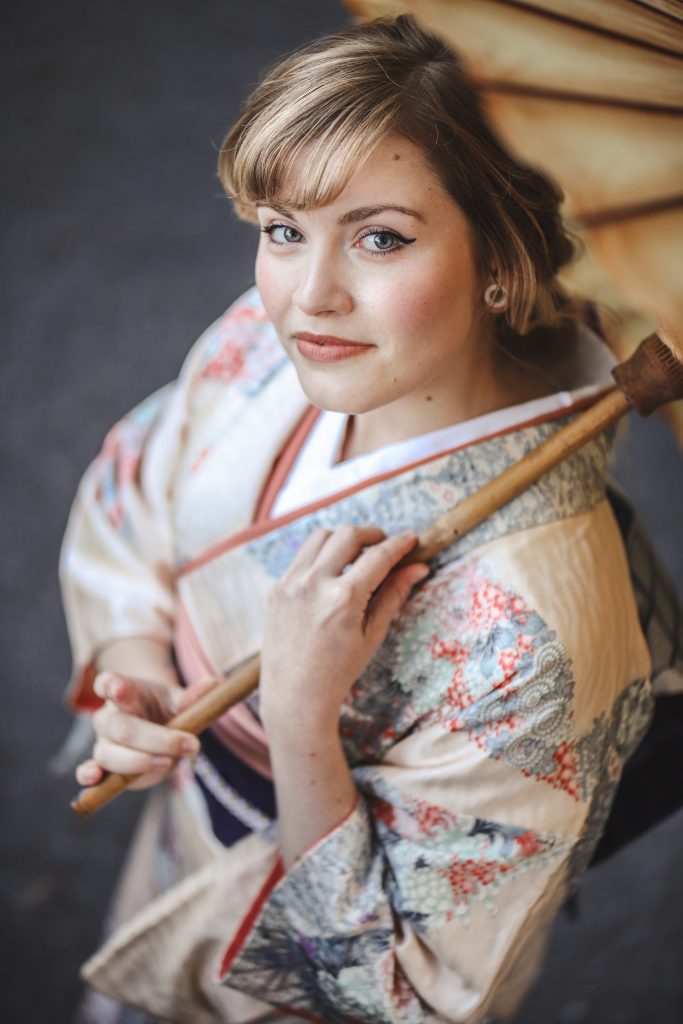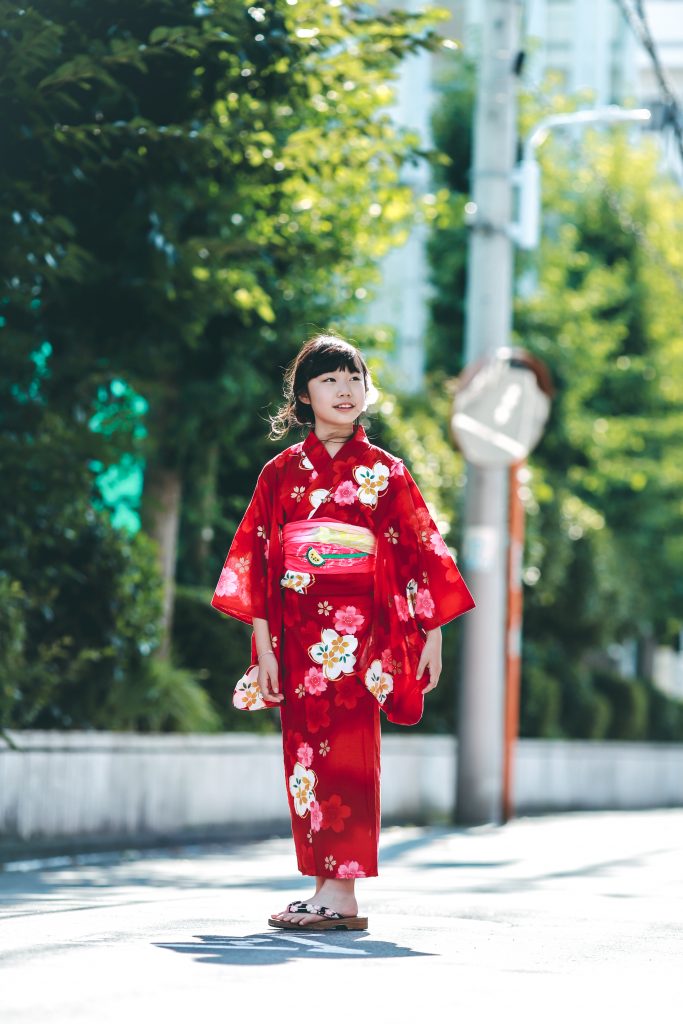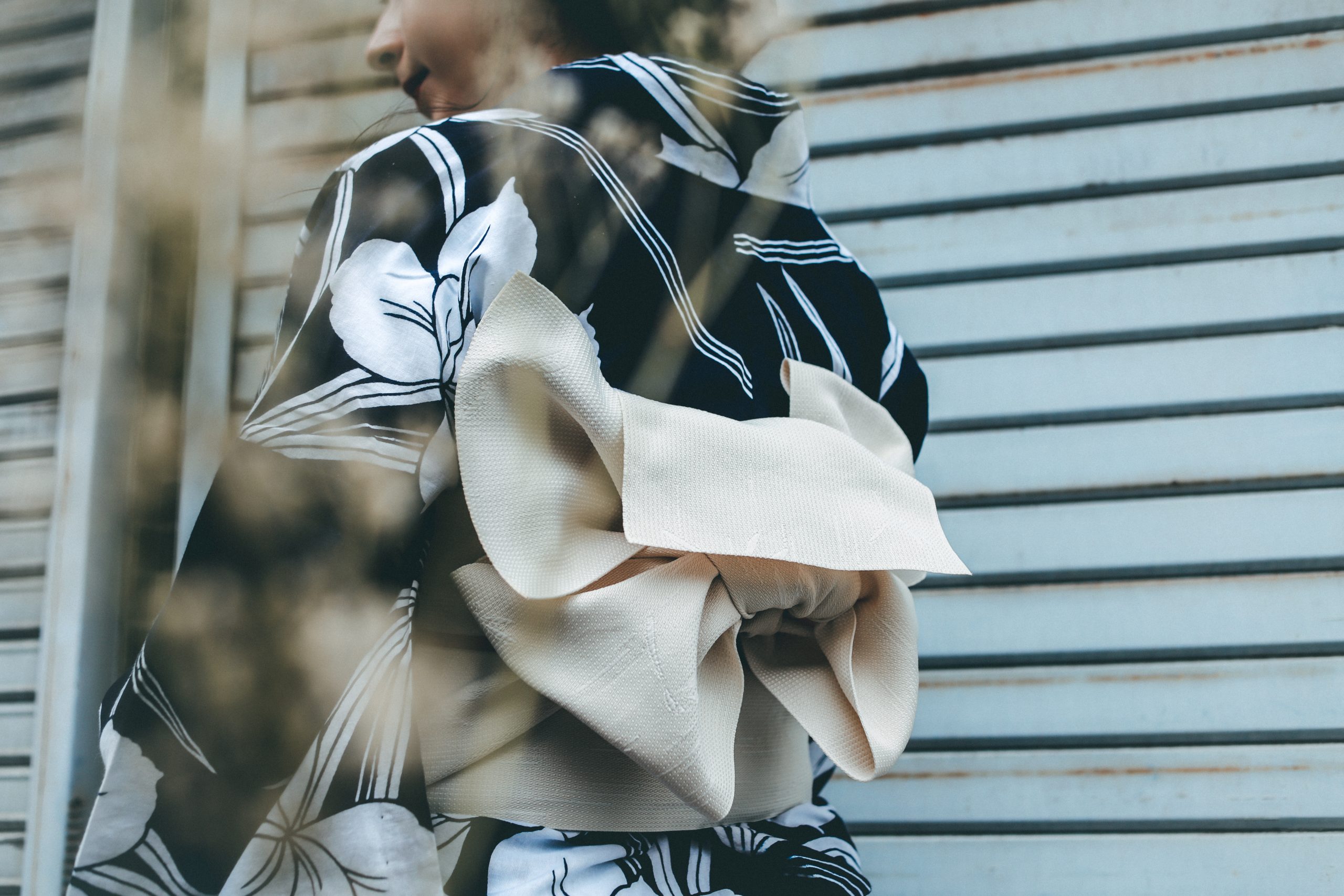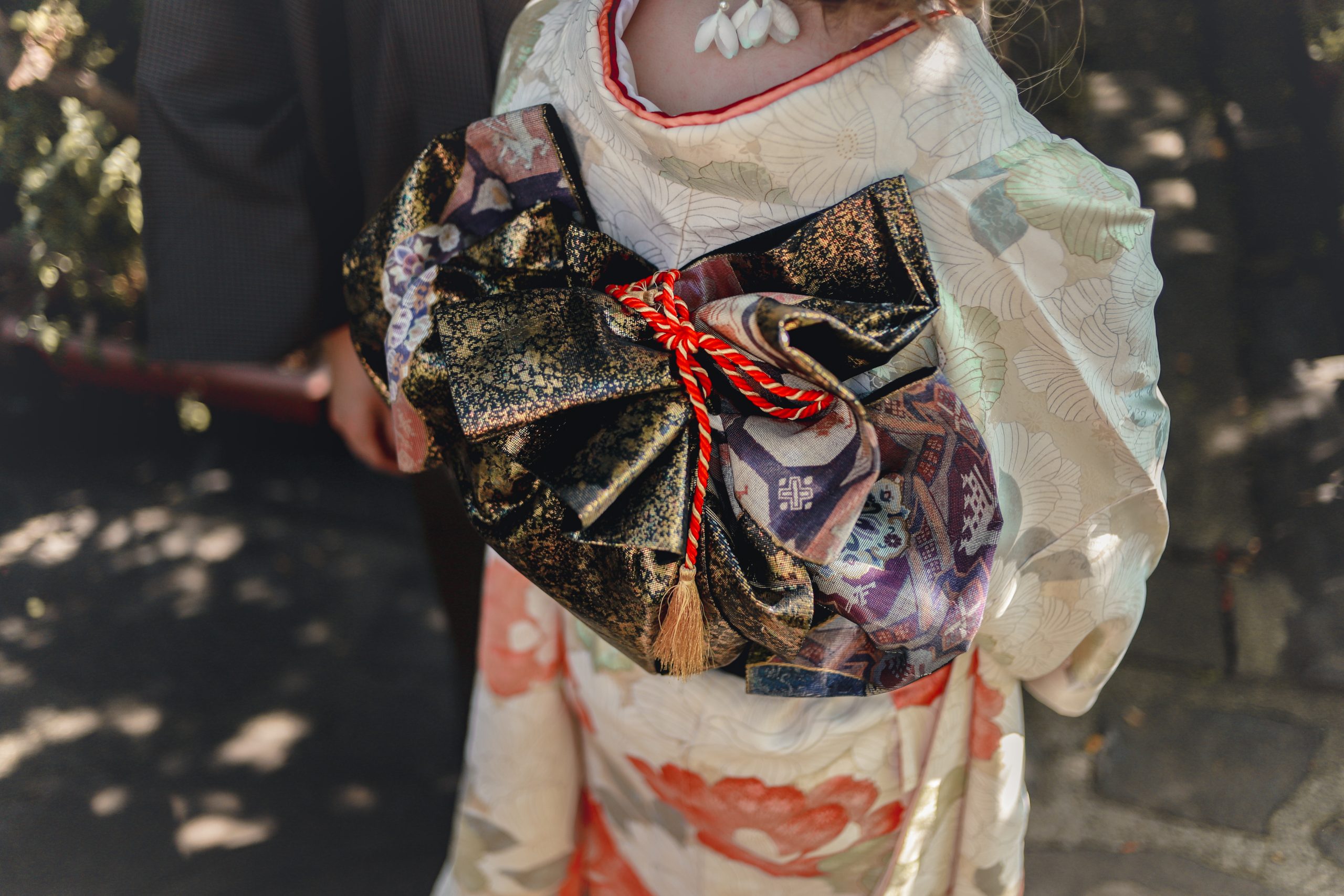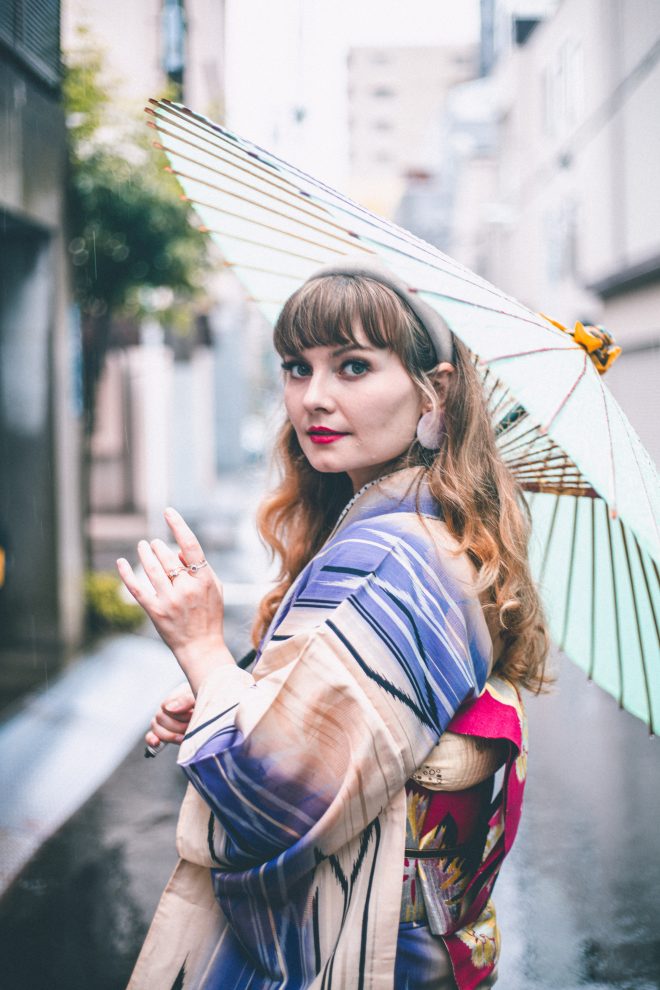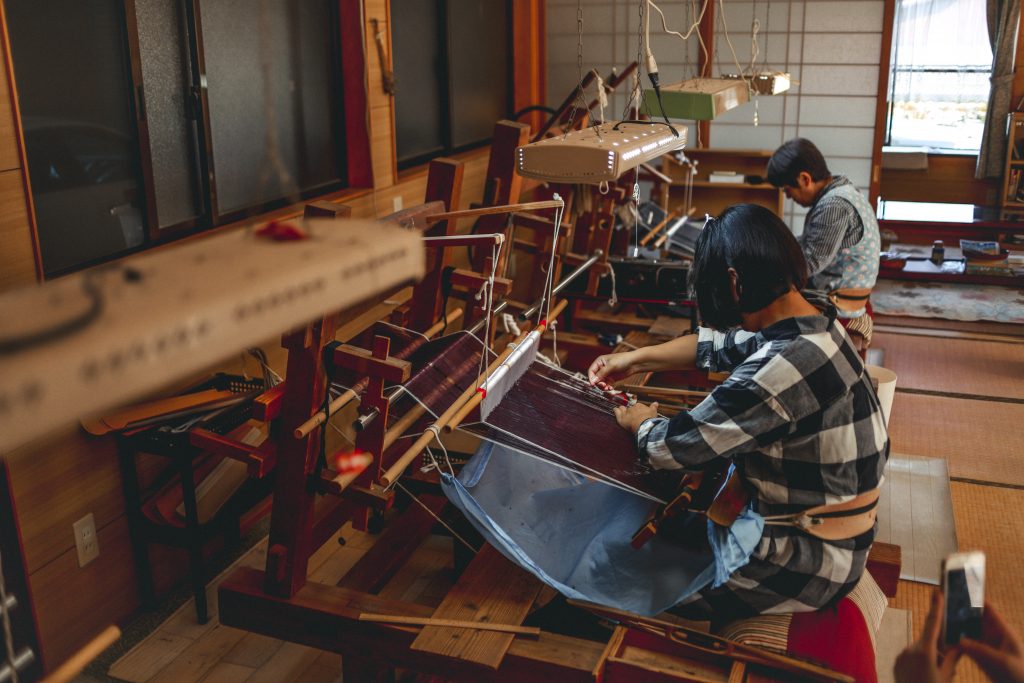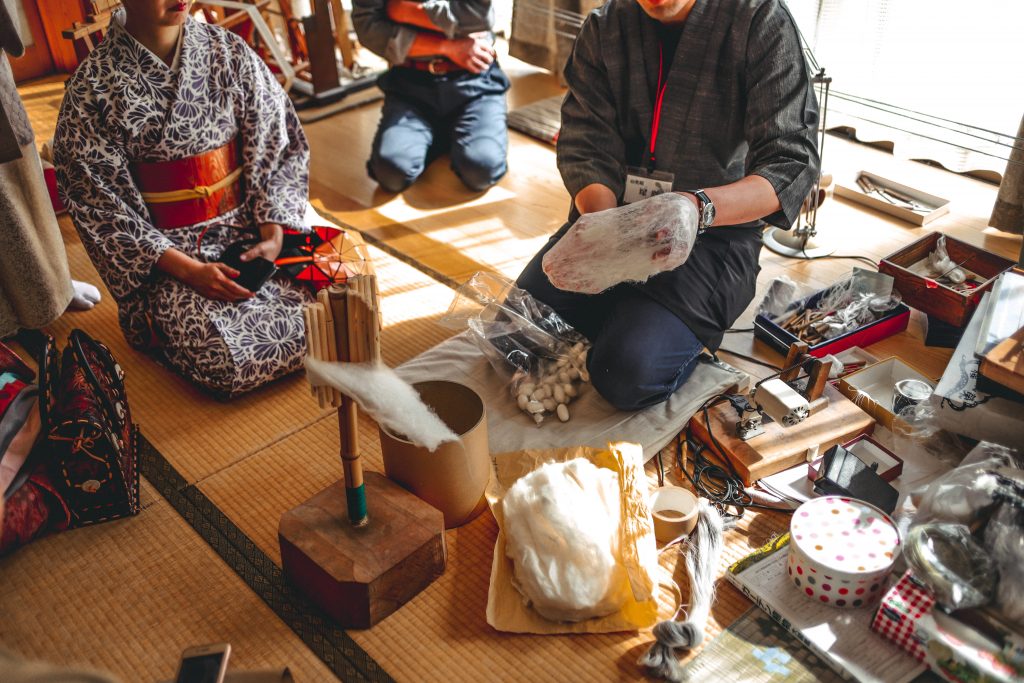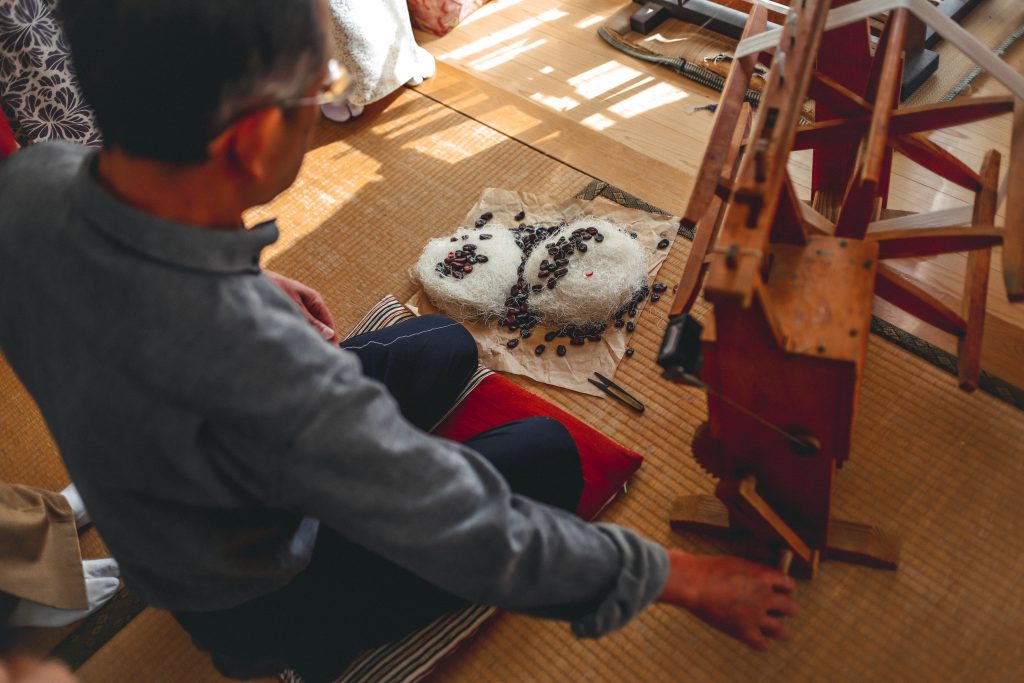Stasia Matsumoto. A licensed kimono stylist, photographer and founder of the Tokyo based business; inKIMONO. Not only does she create unique Kimono looks based on the personalities of her clients but she also goes above and beyond to makes sure people of all sizes, shapes and styles feel comfortable showing their true selves.
We talked with Stasia about her journey, what self employment means to her as well as learning about her surprising advice for anyone interested in starting their own business.
── Thank you so much for taking the time to talk to me today. I'm really excited to hear about your journey, because you've experienced quite a lot in your career: from your photography projects to the kimono business. For the readers who don't know yet, would you mind introducing yourself by telling something about yourself?
Yes, sure! Well, shortly: My name is Stasia, I am originally from Poland. I've been living in Japan since 2012, so it's going to be 10 years. At the moment I'm running my own business. I do kimono styling and photography…yeah, that’s about it (laughs).
── Now that you have your own business, how did that come about? Did you always have the idea that someday you want to have something of your own?
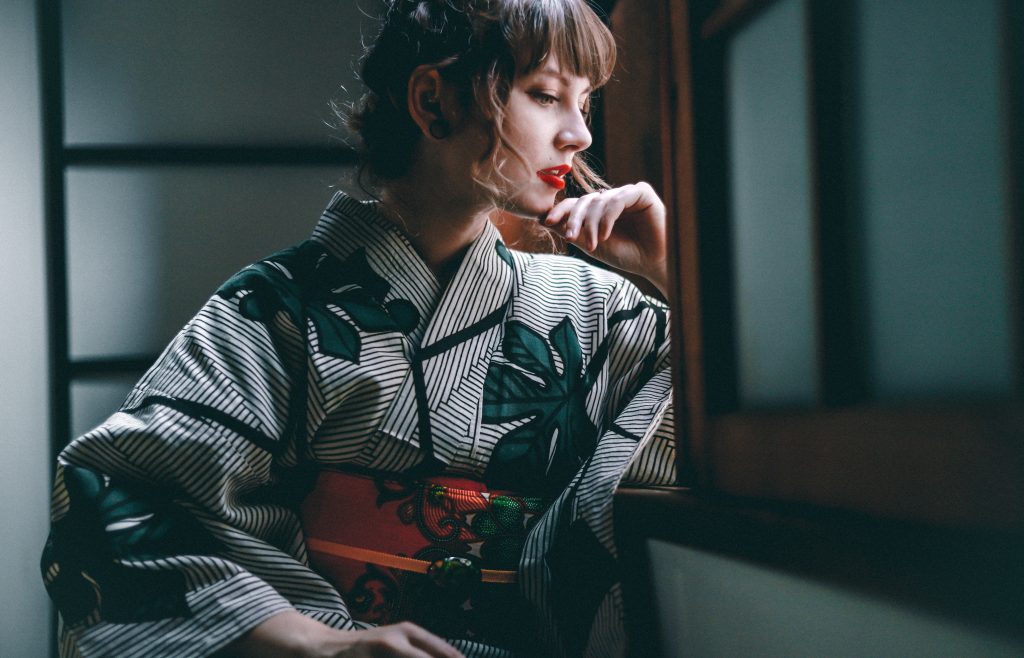
I had a plan, I had an idea, I had this vision that I wanted to achieve and I worked towards achieving that.
Not really. I think it's kind of difficult to start with the idea that one day I'm going to have my own business. It's not something that you think about too much, I think. Especially since no one around me had their own business, they were always working for someone. So that seemed natural to me. In my case, it was a process. What I know for sure is that I don't want to work for someone. I don’t like having a boss, I don't like having a manager, I don't like having someone telling me what to do and how to do it. Let’s say there are disagreements where I think that this way is better and it’s going to work well, but someone would tell me “well no, you don't know anything! That's not going to work”. Then for me it's kind of like “hmm. Okay. You just wait! You’ll see that my idea was better“ (laughs).
It happened so many times when I used to work at a regular company with a boss or a manager. So I was always thinking that I am not enjoying this, so the longest I ever stayed at a regular company was three years. That’s it. That's my longest experience. But it was a process, those things don't happen just overnight. You need to set up a lot of things, you need to have an idea. I mean, it also depends on what kind of person you are! Everyone has a different personality and when it comes to me, I like having a plan. I need to have everything planned. Let's say I have a plan for this year: this is what I want to achieve, this is how I’m going to do it. Step-by-step. Nothing is spontaneous. So this is how I am and this is how I do things and this is how it happened. I had a plan, I had an idea, I had this vision that I wanted to achieve and I worked towards achieving that. It took many years and it’s not only my kimono business or photography. It’s also studying Japanese, to be fluent; it’s many many things. Also paperwork and all the boring things, which are important. You know, people need to remember that business is also about doing all those things that are not really exciting. Yeah, like I said: I had a plan, I had a vision.
── What was your vision?
Once I had an idea about what I wanted to do, I wanted to combine kimono and photography, so I would write down a lot of ideas. I had to know how everything works. But you won't know unless you try it, right? So once I figured it out I knew for sure I had to quit my full-time job. I wanted to do this full-time and then naturally I started thinking about having a proper place to do that. Of course I needed a studio and such. So it was a long process, but this is more or less how it happened and how I got to where I am right now.
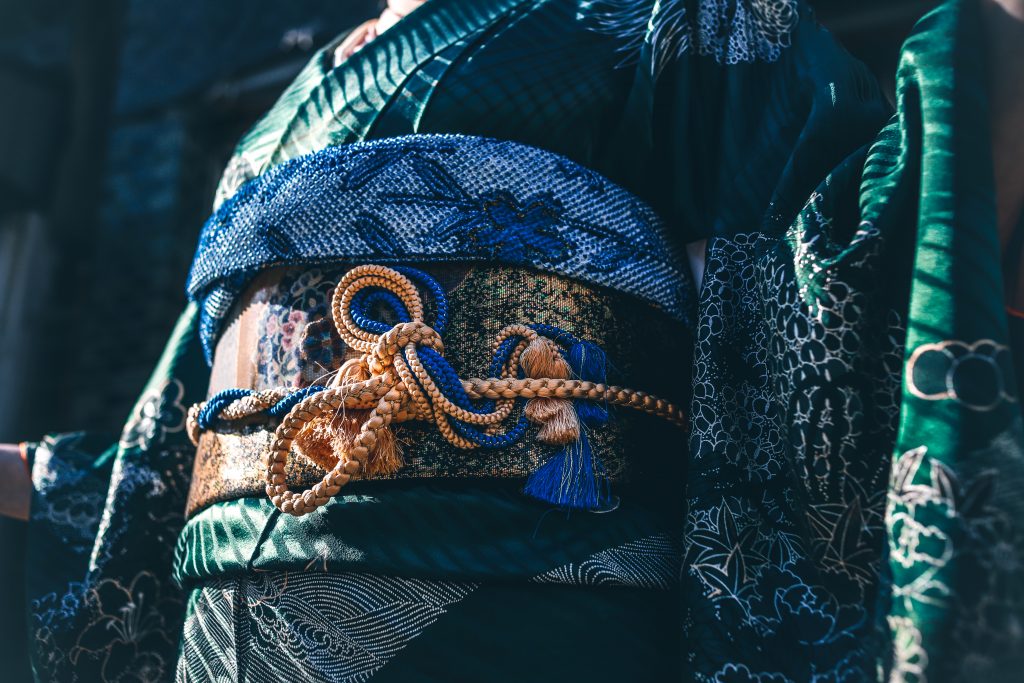
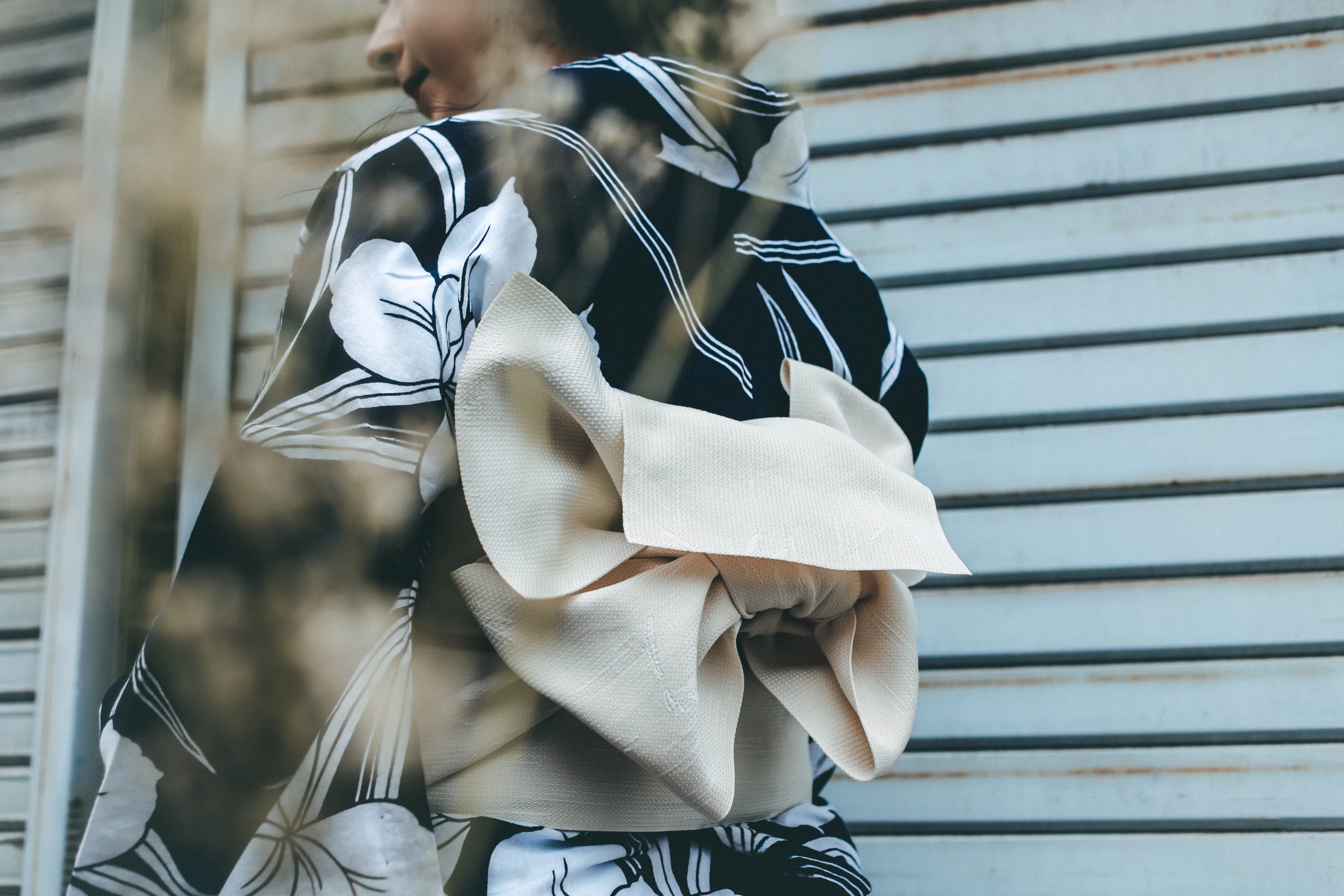
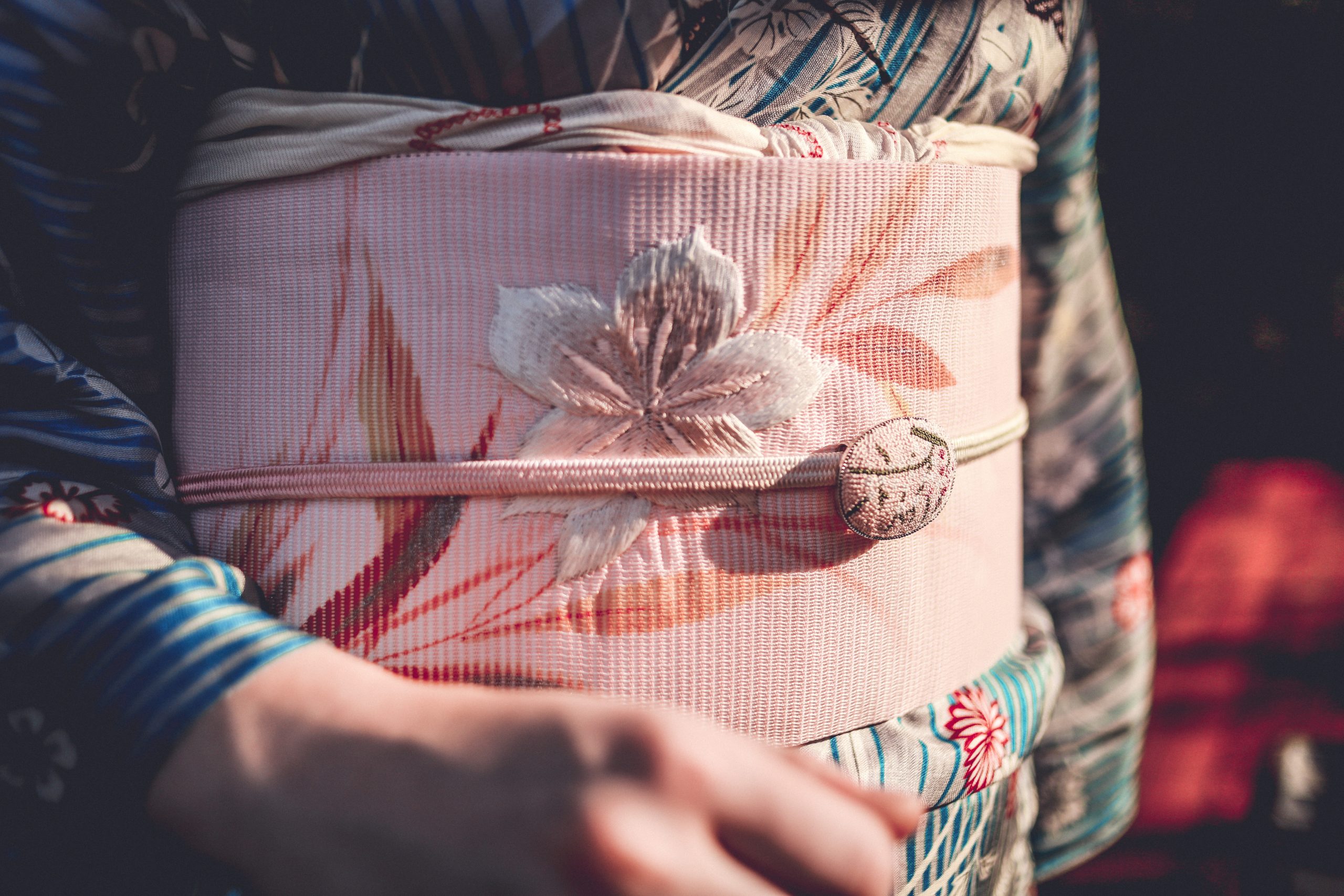
── That’s really cool! I think not many people our age have their own business, it’s a lot of responsibility.
Yes! Although I’m not sure if you know how old I am (laugh). I’m 32.
── Okay, so we’re quite the same age (laughs).
It’s not really young, but I guess… not old? (laughs) I started my business full-time at the end of 2018, so I was 28. Okay I see. If you think about it, that’s fairly young.
── When you decided that you want to do something on your own, what were your fears and hopes during that time? And thinking back, which of the hopes and fears did come true and which turned out quite differently from how you expected it to be?
The biggest fear of course is that I would not get any bookings and everything was pointless. I quit my job and was risking a lot, right? Because to be in Japan we need a visa. So once you quit your job and you switch to a self-sponsorship or business visa - it's really stressful. So that was definitely the biggest fear. Well, as for hope…obviously I was hoping that my business will grow, that I can continue, that I can do it full-time. I didn't jump straight into going full-time actually. I had to make a name for myself. I don't want to make it sound serious, because I mean obviously it's not like I'm a huge brand or anything, but I needed people to know what my idea was and what it was that I was doing. So for a few months, I think it was about half a year, I would do shoots twice a day on my days off. I would work five days a week and then I had two days off and on those two days off I had shoots. Twice a day. So for about half a year I didn't really have a day off, but those things are necessary, when you're trying to establish something for yourself. Like I said, I didn't jump straight into full-time, but once I decided that I wanted to, then obviously my biggest fear was that it wouldn't last. I just wanted it to last for a long time. I mean it's going okay, I guess? It’s going fine (laughs).
── I think it's quite amazing what you have established for yourself. You're also posting about kimono and you're educating people who don't know about it yet, so it's a really valuable thing you do.
Yeah, I hope people find it interesting, so thank you.
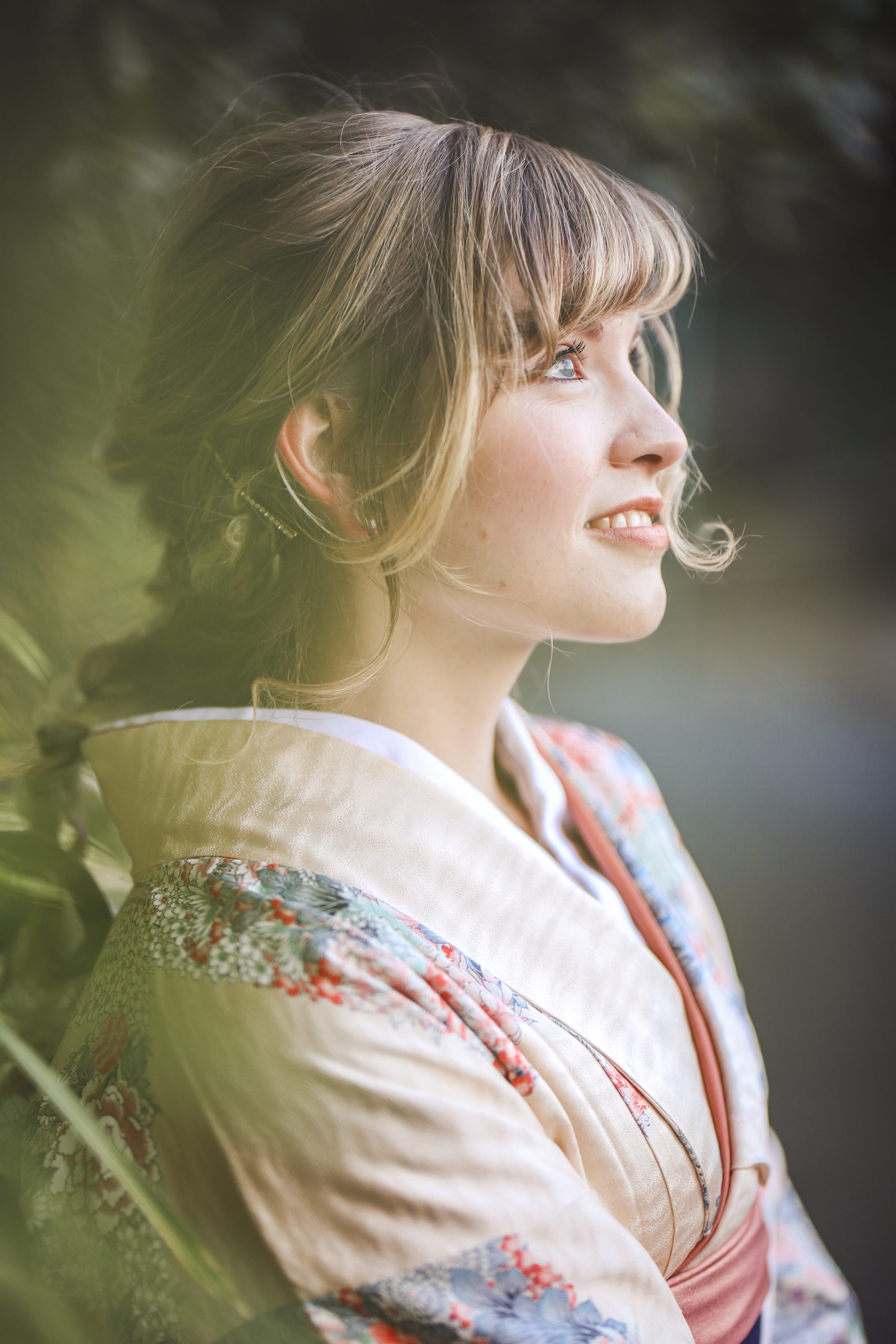
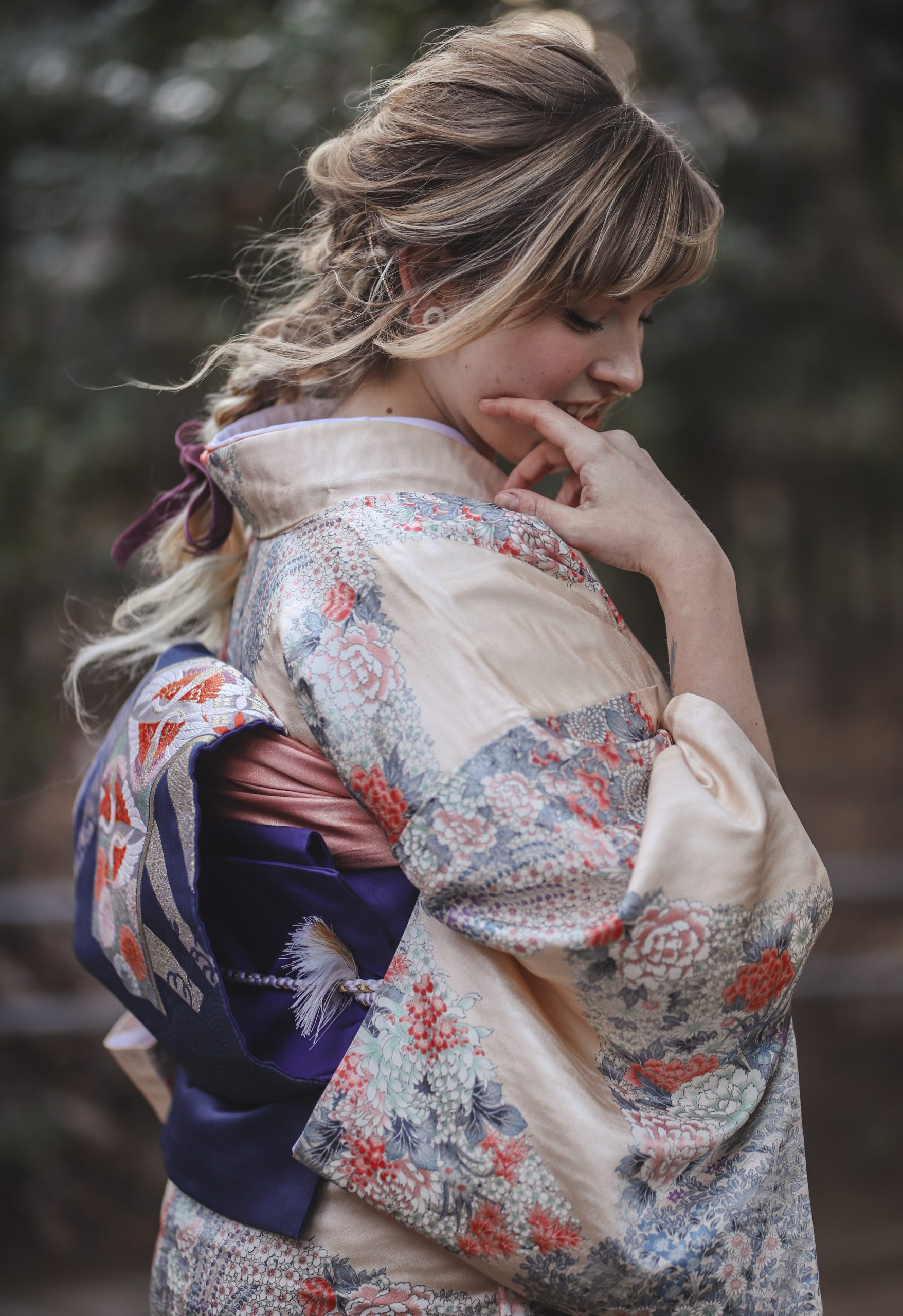
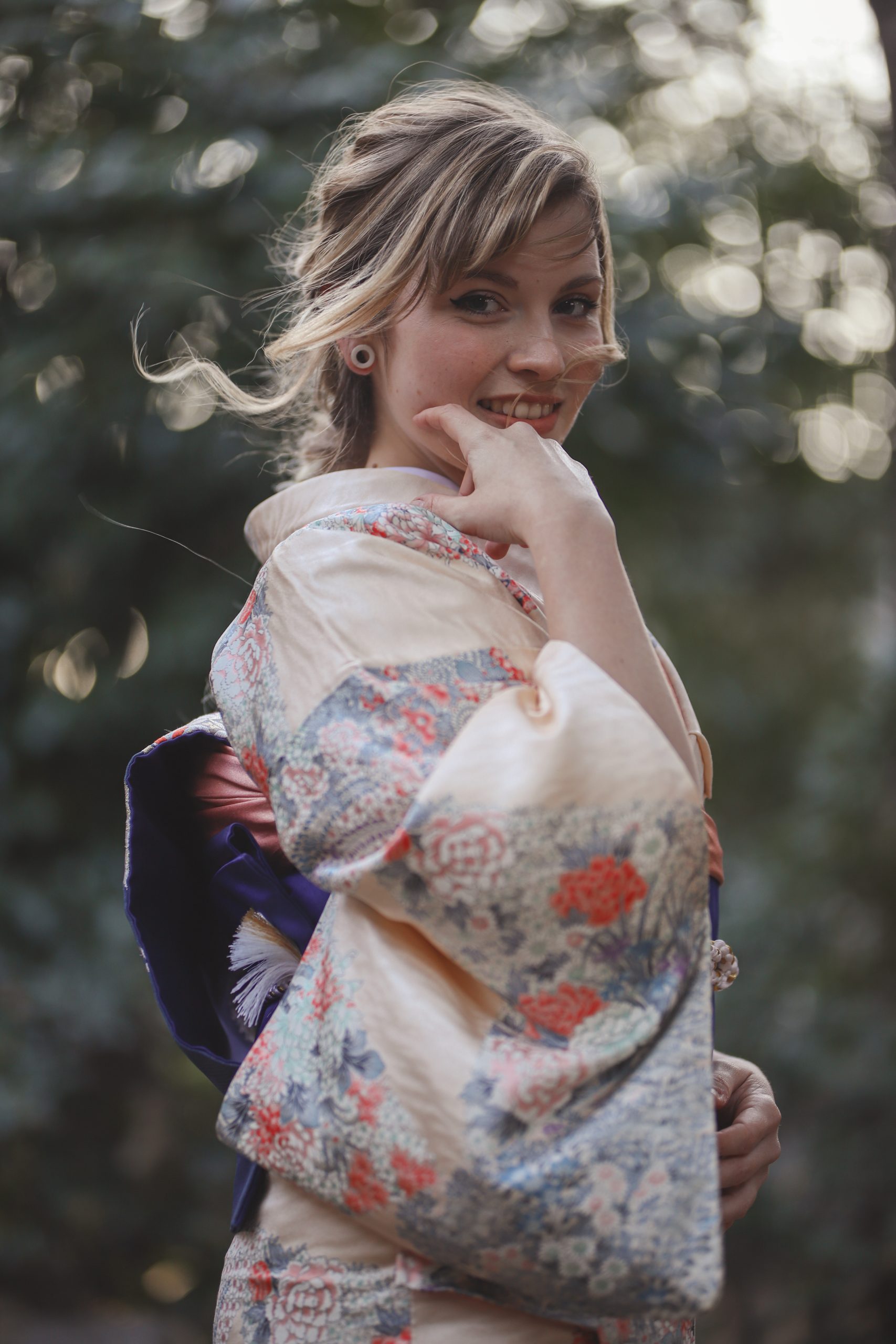
── And when you think back, how did your education help in your career? What did you have to learn for yourself from experience? I think, starting a business or doing creative work, you have to learn a lot by yourself, things that aren't taught in school. How was it for you?
By my education you mean at what level? Like university for example?
── Yes, university and maybe also when you studied how to style kimono. Everything!
Oh I see! When it comes to my university education it's not really connected. Yes and no. I mean, I studied Asia-Pacific studies and Asian Cultural studies, so my main focus was Japan, obviously. Let's say I have some background knowledge like the history of Japan, and I know more or less about the culture. I have that, but specifically to do this job, it’s not really connected to university education that much. I did go to a kimono school and actually next month I'm going to graduate! Finally, after five years. It's time (laughs)! So I learned about kimono, where you start with basics like how to dress yourself. I have a professional license, so I have all the theory. We really studied a lot of technical details like types of weaving, the life-cycle of silkworms, different fabrics, different techniques, so I have that knowledge, I can explain it well. That's very obviously connected to what I'm doing right now because I don’t only do kimono styling and photography. I also give a brief explanation. I can go into detail, but that would take hours. I can literally talk for hours. I try to keep it around 40 minutes usually, which is very compact, but after we finish the photo shoot, at the end of the day you are richer in knowledge, you understand how it works, you know what you were wearing, what kind of kimono it is and how it works. When it comes to photography though, I am completely self-taught. Completely! So I have no theory whatsoever. Nothing! I'm very honest about it. I don’t know, it’s just how I see things: I see something, I think it’s good, I like it, that's it. I never studied any photography theory, so I had to learn all that by myself. Also obviously how to use my camera at first. That's also something that I had to practice. I had to master that, but once I did, I really knew what to do. There are also other things that I use for work, such as editing… Nobody teaches you how to operate Lightroom or Photoshop. I learned it by myself. I would say I'm pretty good at it at the moment, but nobody taught me that. And it's not something that you really learn at school, unless you choose a photography major. But you see, without having that formal education, I call myself a photographer. I have no problems with that.

── That’s amazing. Because I’m sure many people have a problem saying that. They haven’t been taught it at school, so they don't have a diploma for it, so people are afraid to use the term “photographer”.
Yeah, I used to be like that.
── How did it change?
I know I'm good (laugh). I know how that sounds…
── No, it sounds great! It’s honest.
I know I'm good. I’m good at editing, I'm good at photography. I don't need to have super expensive equipment. I know how to use my equipment to the max. I enjoy what I do, I like what I do, I have a style. I think if you see a portrait photo of someone in a kimono, you know it was taken by me. And this is what I wanted for myself actually. But honestly, at the beginning I was like “oh well, I don't have a paper to prove my qualifications“. I do have a paper to prove my kimono qualifications, so…(laughs). But it's not always about that, it’s about your skills. And I am pretty confident in my photography skills.
── That's amazing. I love that you said it, because it’s important to be honest.
I know how it sounds though…
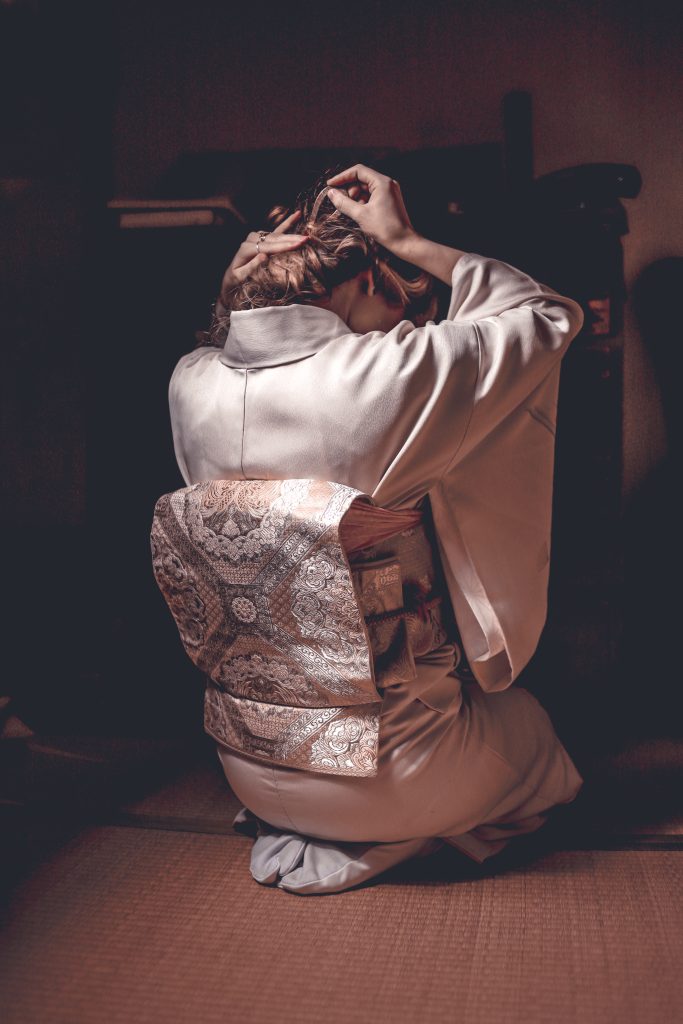
── I love it (laughs)! And now that you mention it, you've been successful, or at least it seems like you have been successful at everything you've done. Were there any projects that you had to abandon or give up?
It's mostly because of the lack of time to do everything that I want to do. There are a lot of things that I want to do, I have those ideas. But time is the biggest problem. Because I'm only one person doing everything and people usually don't realize how much time I spend working. It's not only you coming into my studio, I dress you, take photos - and I finished. Even only that is about 5-6 hours, but there are also many hours of preparation prior. And there are many hours after. And especially since I'm just one person, it really takes a lot of time. So there are many things like my tattoo photography project that you mentioned at the beginning. I wish I could continue, but first things first. And my kimono work is my brand. I can not say it's my company, because I'm just one person, but it's the most important thing for me, so obviously this is what I want and have to focus on. But yes, there are many things I want to do. Like my personal photography projects or this idea I had last year; I want to start a plus-size kimono line. Because this is the reason why I went to a wasai school, a kimono-making school, to make a real authentic proper plus-size kimono. That was my goal and I know how to do it. I made it, I designed it - it's just the time that I need. There's so many things I want to do, but first things first.
── That’s amazing. I've never even thought that plus-size kimono might not exist. Do those exist or are there just not many?
Plus-size kimono kind of exist, but usually it's a two piece thing, like a skirt and the top. Or they’re just made using regular fabric and not kimono fabric. Because kimono fabric has its limitations when it comes to width. I didn’t want that. Or sometimes there is also a type of kimono that is a bit wider in a certain spot. But I didn’t want that either. I wanted a proper shape kimono, same as everybody else has. So I used two rolls of fabric, but real authentic rolls of fabric. It was for yukata actually, because I made a yukata, but it’s more or less the same. The process of making both is very similar.
Oh, actually this is something I wanted to mention when you asked how education helped me in my work! So although I did five years of kimono school, there’s no practice whatsoever on a variety of body types. We just have one mannequin and it’s assumed that everybody is one size. NO! People are different! There are tall people or sometimes very very petite people, some are plus-sized. Until now I had such a variety of clients, so I had to perfect those techniques by myself. But I figured it out because I am not scared of it. I would say that many people are taken aback a bit like “oh how am I going to do this? This kimono is a bit small, how will I manage?” - you can. You need to figure it out. And I have it figured out, but it came with practice. I really had to figure things out and now that I have, I know. But those things are not taught, which is too bad because people are not free size or one-size-fits-all, everyone is different. So I would say I had to do that by myself. That’s actually a strong point of my service. I don’t freak out “oh you're so tall! What will I do???”. I'm fine, I can do anything. We’re good (laughs).
── It’s really cool that you mention it. I think it’s also what makes your clients feel comfortable that they still can wear it regardless of their size and they don't have to worry about it.
Absolutely! Yes yes yes. Absolutely! No problem, I will never say anything like “oh you're too big for a kimono”, “you’re too tall for a kimono”, “your arms are too long for kimono” - and those are things that I hear all the time in my school. Commenting on people's body types is so common and I hate it, I would never do it. All I want is for everyone to feel comfortable and this is what I'm trying to do.
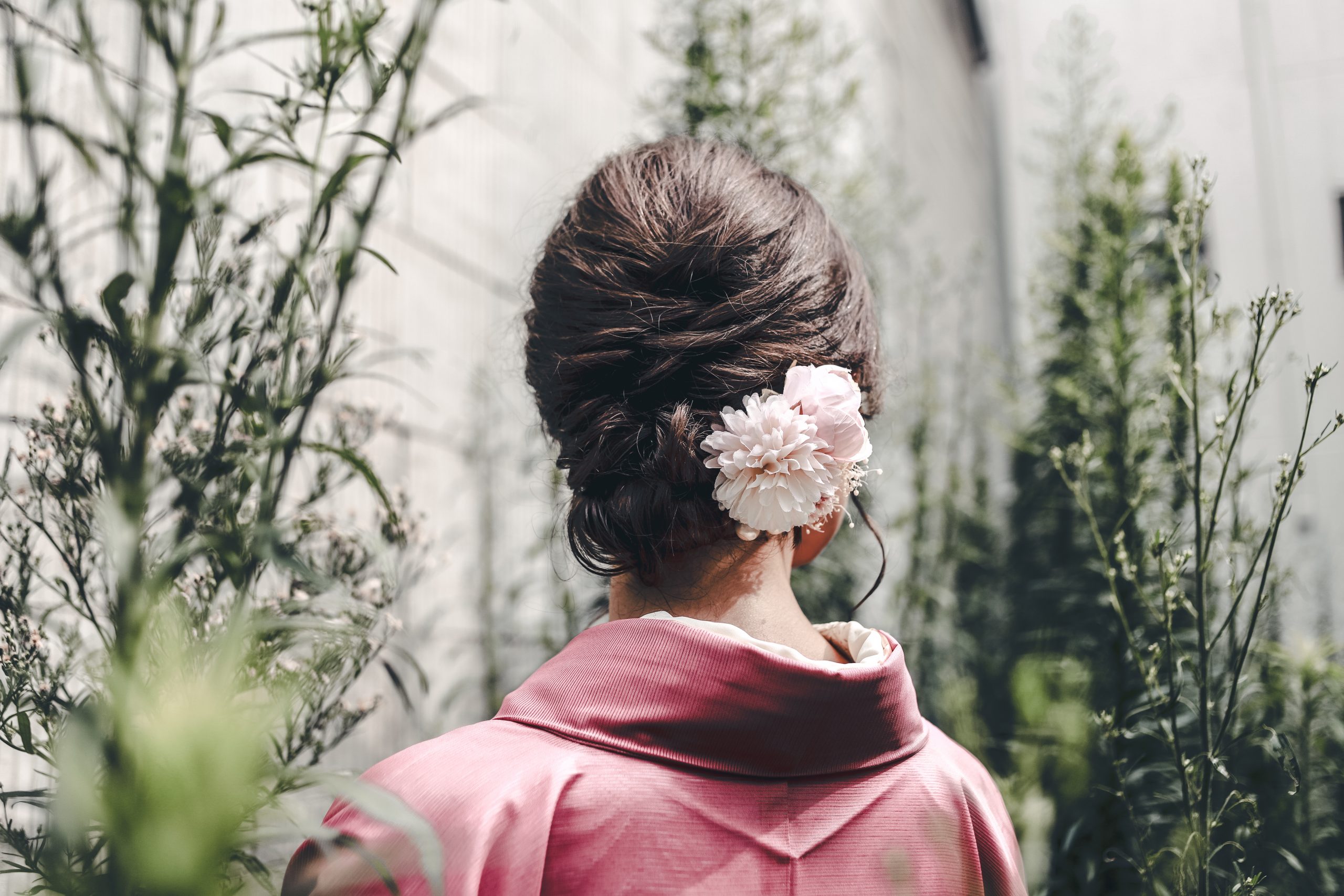
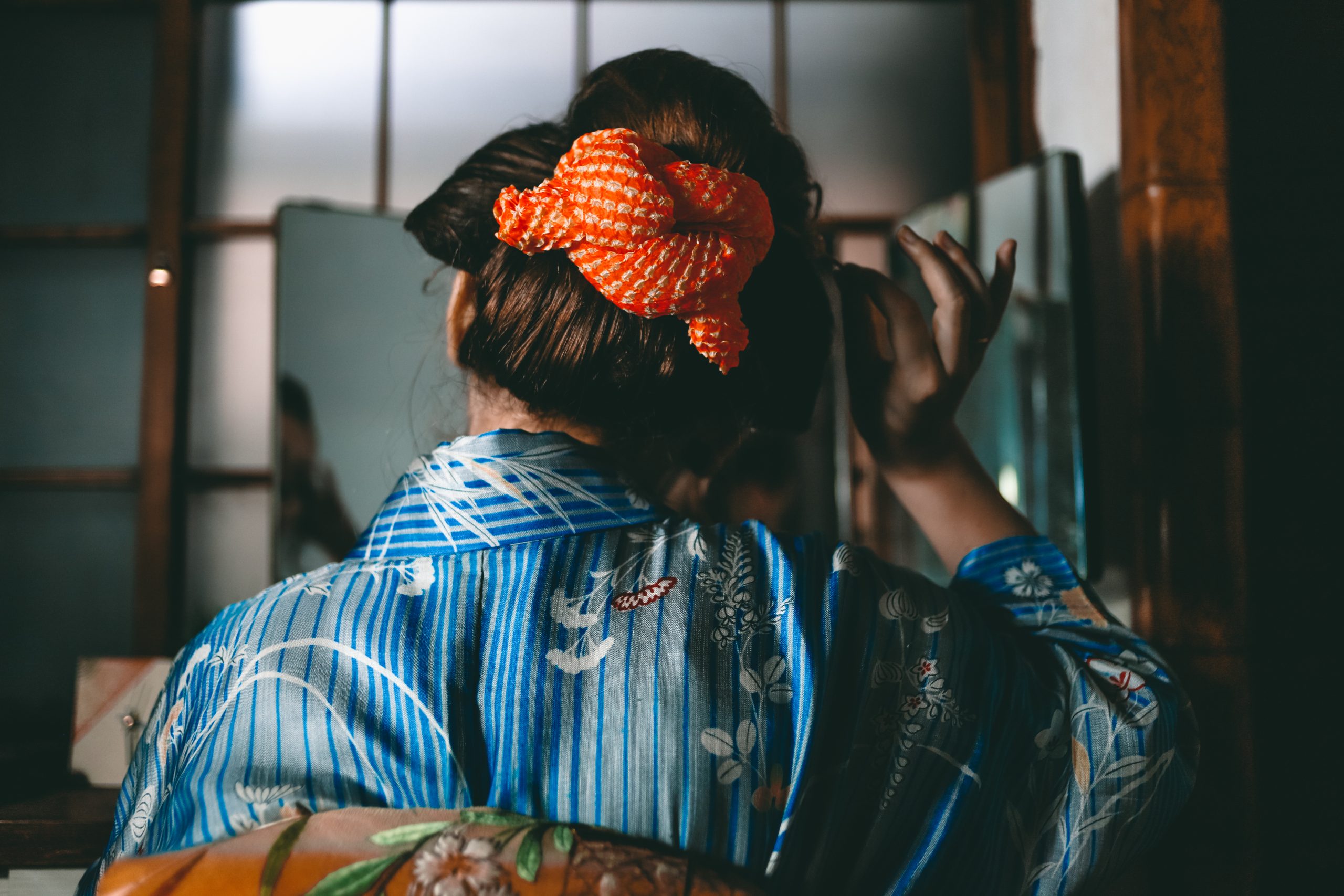

── You also started a project photographing tattooed girls in Japan, which I think is such an amazing thing to show more people who are tattooed. Especially in Japan where it’s a taboo, especially for women. You really show that people are different, everybody is different shape, different looks…
Yeah, I am different and I live my life just fine (laughs). People like to over-dramatize things. Just be you, we're good and we can figure it out. We’re all different, but we're also kind of the same. That’s how I'm basically trying to live.
── Are there any challenges you had to face in your career until now? Except of course the challenges of building your own brand.
What I still kind of deal with is not being taken seriously. Many times. Be it photography or kimono, both. It depends on who it is really, people react in different ways, but my least favorite thing in the world is not being taken seriously and it happens a lot. There's a lot of paperwork that I had to do for my business. Then I show up at an office and I say “I want to register this and this” and people are like “What? You? Kimono? What are you talking about? YOU? You being you?“ - well YES. Things like that happened and they still happen actually. So this is maybe the biggest difficulty.
── Is it because you're a foreign woman in Japan or is it your age? Because you're younger? What do you think is the reason that they don’t take you seriously?
I think it's everything altogether. It’s all of those things. It's like a bomb. It's this mix, you know? When they see it, it’s like “wow, confusion! How do I deal with this person?”. It’s not everyone, it just happens quite a lot. Sometimes people react normal. But sometimes it’s like “wow, this person, this woman, this foreigner, speaking to me in Japanese, saying that she does kimono. What?”. Yeah, those situations happen.
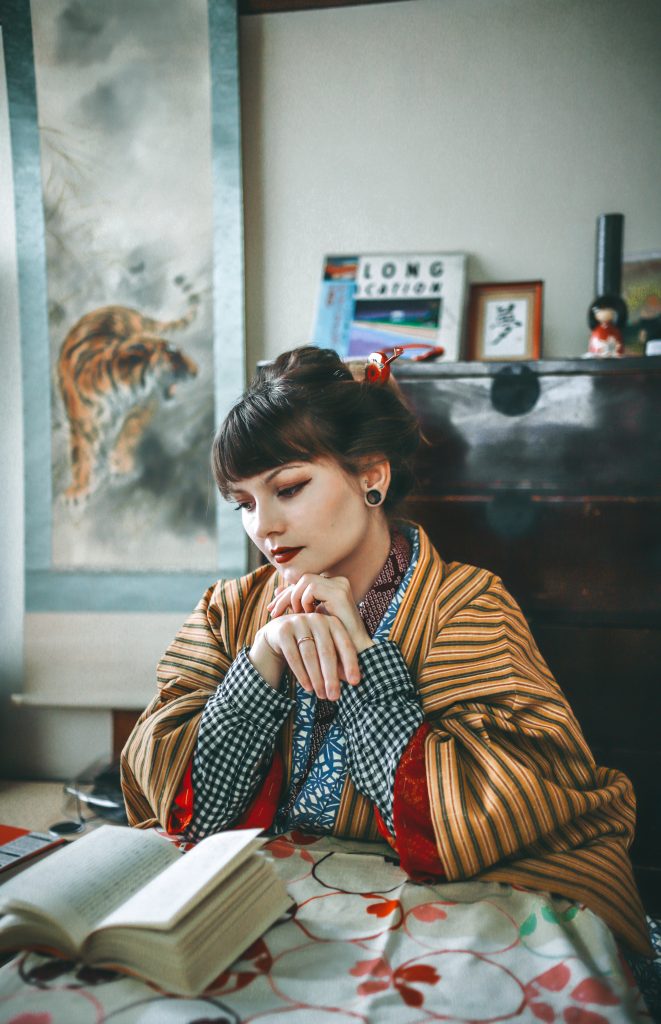
── How do you deal with them?
I mean that's another thing. I'm a very proud person. I can’t deal with situations like that. You treat me seriously or we do not talk at all. I have no problems with being very blunt. You know how in Japan people go around the topic and it ends up being really passive aggressive? Like you're trying to sound nice but in your mind you like “okay???”. But I have no problems just saying bluntly “Talk to me normally. I'm here to do this. I need this done for my business - what is your problem?“. You have to stand your ground, I think. Especially when you’re a one-person business. That's it. Stand your ground.
── It’s really important. Setting your boundaries.
Yes, exactly. That’s very important.
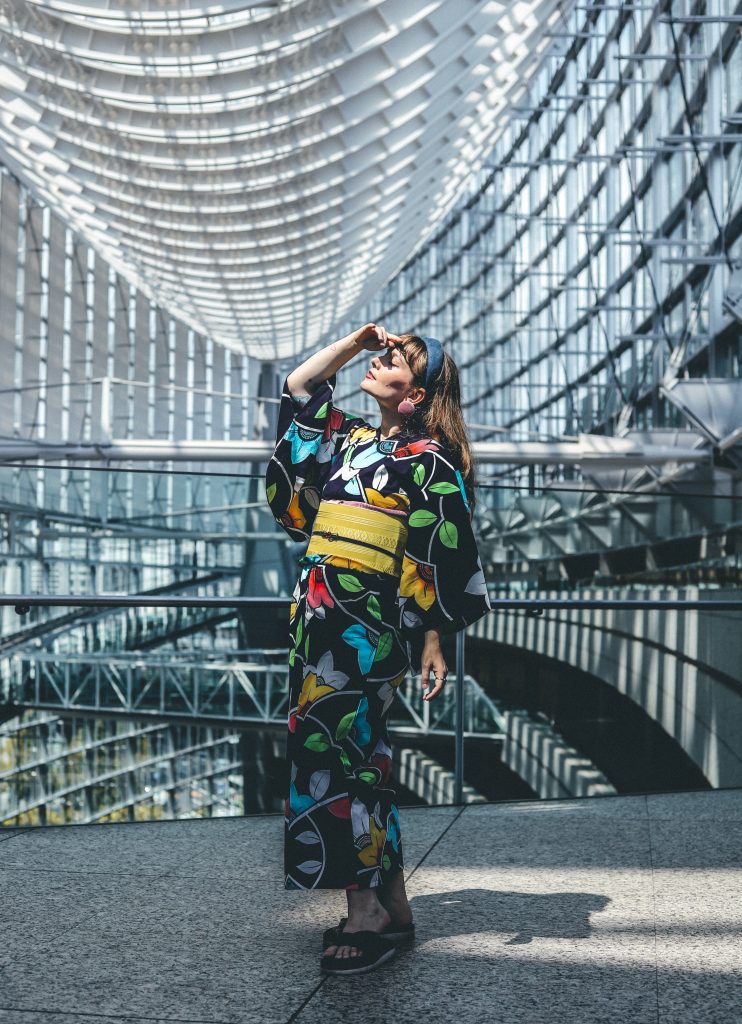
── And on a more positive note, what was something you're really proud of, that you've accomplished until now, where you maybe first thought “I would never be able to do it”.
That is also another thing that I get asked a lot and I always have problems answering. Because on one hand I think that there is more I can do. So it's kind of difficult to choose one thing now, maybe because I don't think that I have achieved something yet. But I guess switching from my room in an apartment to having literally my own shop, my own studio. It’s literally my own! I own it, it's built on MY land. Thinking about that switch in only…three years? I think that's pretty big. I should give myself more credit.
── Yes! Especially since you mentioned you didn't want to have a boss who tells you what to do, now you have your very own shop.
Now I’M the boss. I’m the one saying things (laughs). No no, it’s just me (laughs). Maybe one day I'll have staff. Who knows, maybe that’s next.
── And now that you're your own boss and you mentioned maybe having staff in the future, do you want to, if possible, stay on your own because you feel more comfortable or is it a dream to have a team of people working with you? Maybe giving them the editing jobs or do you want to keep doing it yourself because you want to?
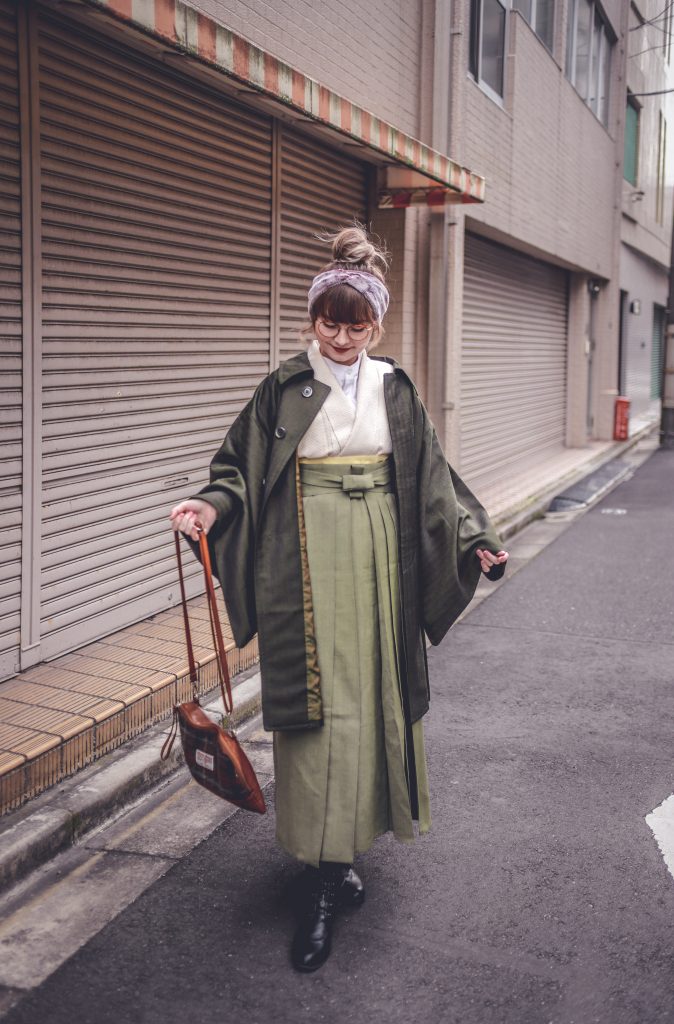
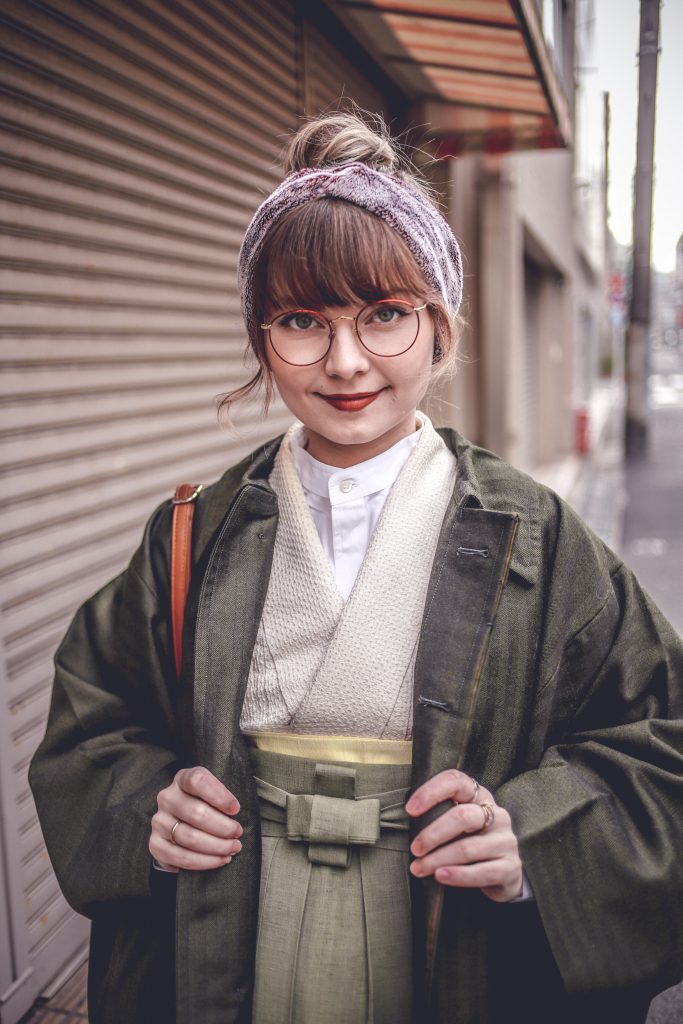
Very easy question: only me (laughs). I want to do things how I am doing it, the way I want it done. It's a common topic of conversation if I say “I have so many things to do. I have a backlog of shoots I need to prepare” so many people say “oh why don't you outsource editing?“. No. No, no, no. Absolutely no. I could not leave it to someone else. It has to be done the way I find it good. It has to look good to me, I have to work on it and see the final effect, then be like “oh yeah this is good, this is perfect ”. I think I want to continue how I'm doing it but sometimes it's not possible. And in my case, last year I started doing bridal shoots. They are so difficult! Doing them just by yourself is not possible. It’s very very very hard, so I had to find an assistant. But she helps me only for bridal shoots. Otherwise I deal with everything by myself and so far this is the best system. I'm responsible for my own work. I like that. Just being responsible for myself. So yeah, that's fairly clear for me.
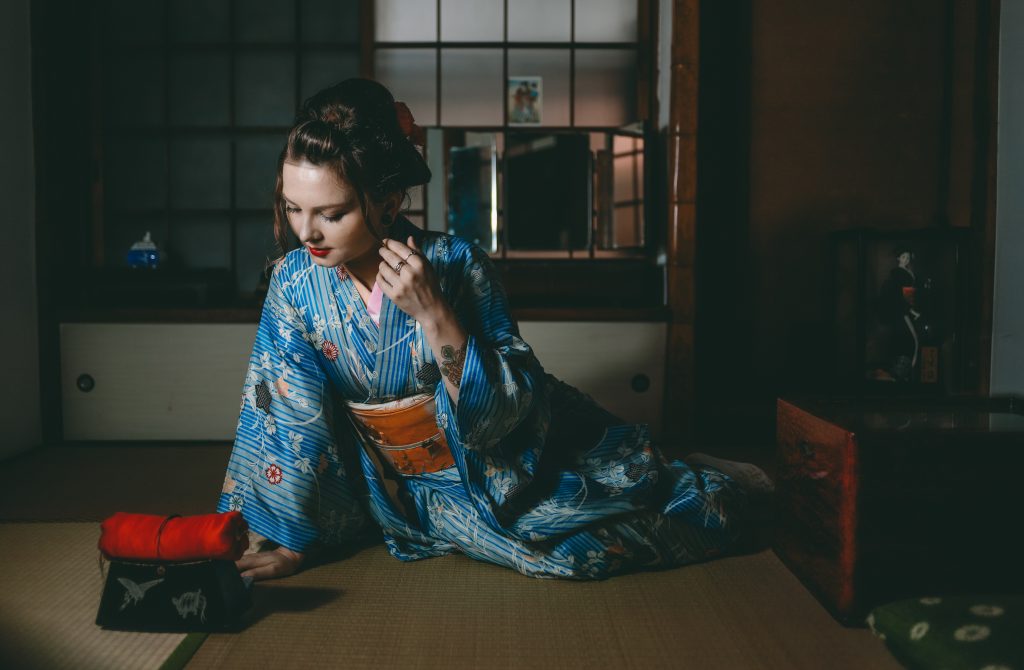
── And what is your current dream? Is there still anything you know you want to accomplish in the next few years?
I want my brand to be better, bigger, more out there. I want my brand to be known. Like people seeing kimono, or they see my name “Stasia Matsumoto” and they know “oh, this is the photographer. This is the kimono stylist! I know her work!”. I want to work towards that. There's always room to improve things, just bigger, better and more. At the moment I do all types of kimono, so I don't know what else I could do at this point, but maybe practice more obi ties for furisode or something. In case of kimono it's never-ending work literally, so I guess that would be my dream for the near future. Just get my brand more out there.
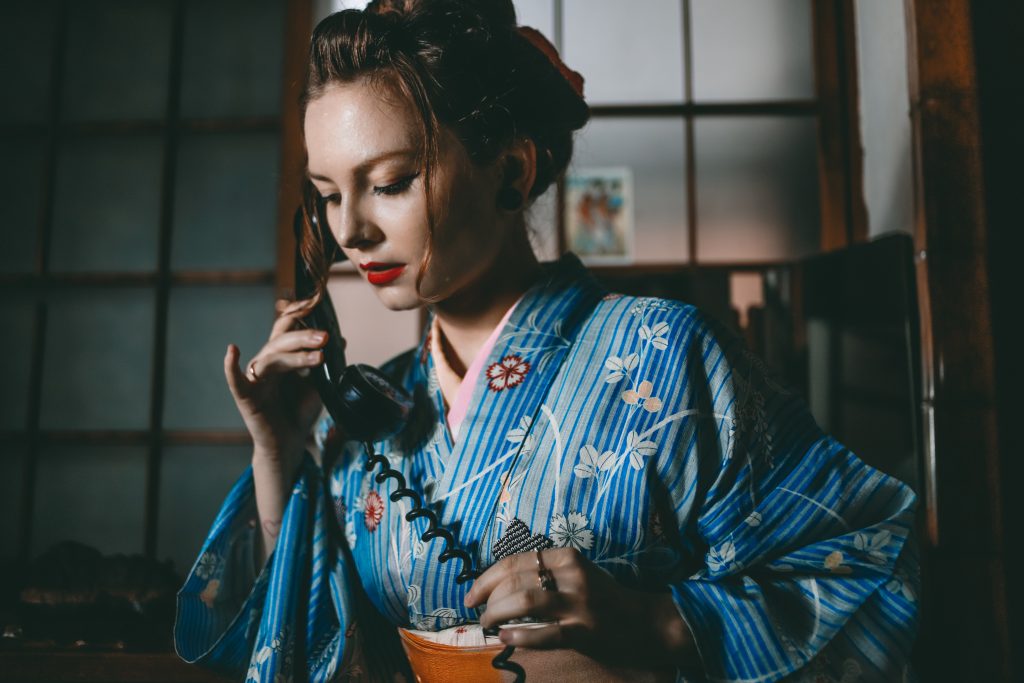
Don't underestimate your skills, your time, the time that you spent studying or practicing to be at the level that you are right now.
── And it seems like you're already happy with how it is right now. Only getting better and not changing up too much.
Yeah, I mean if it works then there's no need to change or do anything else. Because it's been working well. So I just want to continue doing what I do and just be better. You know, do more, get bigger. That's my plan.
── That's cool. And because you started your own business, do you have any advice to somebody who wants to start their own business? When you think back, what do you wish you had known before you started it?
First of all: don't underestimate yourself. Don't underestimate your skills, your time, the time that you spent studying or practicing to be at the level that you are right now. Because it's been many years. And at the beginning I wouldn't take those into account. Like I said before, at first I had problems with just calling myself a photographer. But it also didn't happen just like that, like overnight. It's been a few years of practicing, doing different things, figuring things out, and now I am at this level where I can take really good portraits, I can take landscape photographs. So yes, I should have called myself a photographer from the very beginning. And I would really just underestimate my time, my work, my quality, thinking I'm not good enough or that I need more practice, that it's not good or nobody will like it. But looking back at my work from three years ago, I mean obviously there is a difference now and three years ago, but still good! So there's always this thought “It has to be perfect! You have to be perfect”. It's good. You're fine. It’s kind of difficult to see it at the beginning, so definitely that would be my advice. Just don't underestimate yourself. If you have this idea “I want to do this, I will quit my full-time job, I will do this full-time” - if you think you can do it, then obviously you have the skill set to do it. So definitely that.
And something a little more boring, but very important: it’s very important to have a contract and write everything down! Even if it sounds silly, even if it's a really small thing, you need to protect your business from the very beginning. And it's not something that you learn at school because we don't have business class and I didn't study business or anything like that. But it’s very important to have rules, have boundaries and write them down. And have people understand what you do, what your work is about. So it’s very important to have a contract. If anyone will read or listen and they are creative, they want to work in a creative field and they are looking for advice - that's my advice: have a contract. Definitely. And of course don't underestimate your work (laughs).
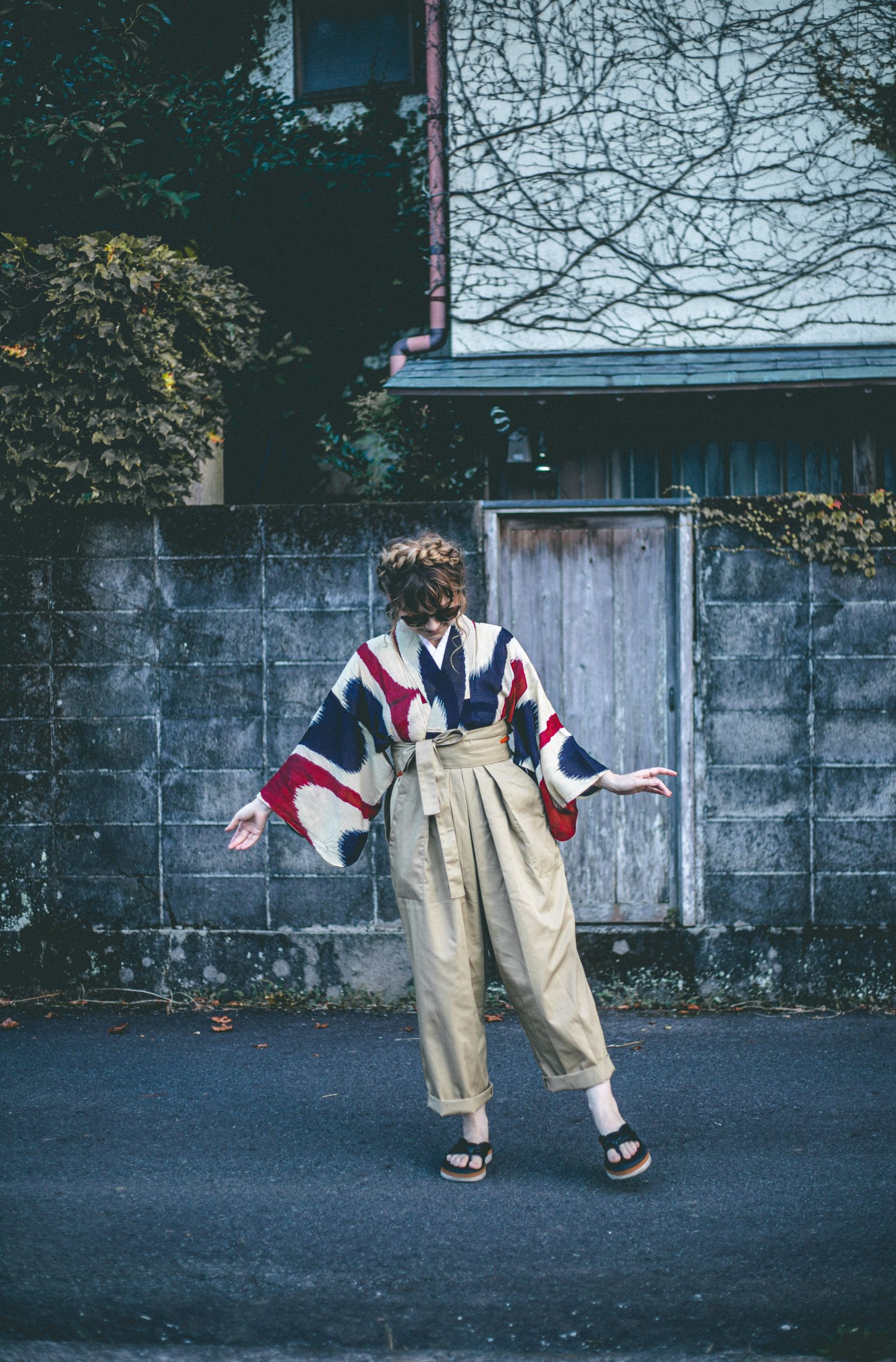
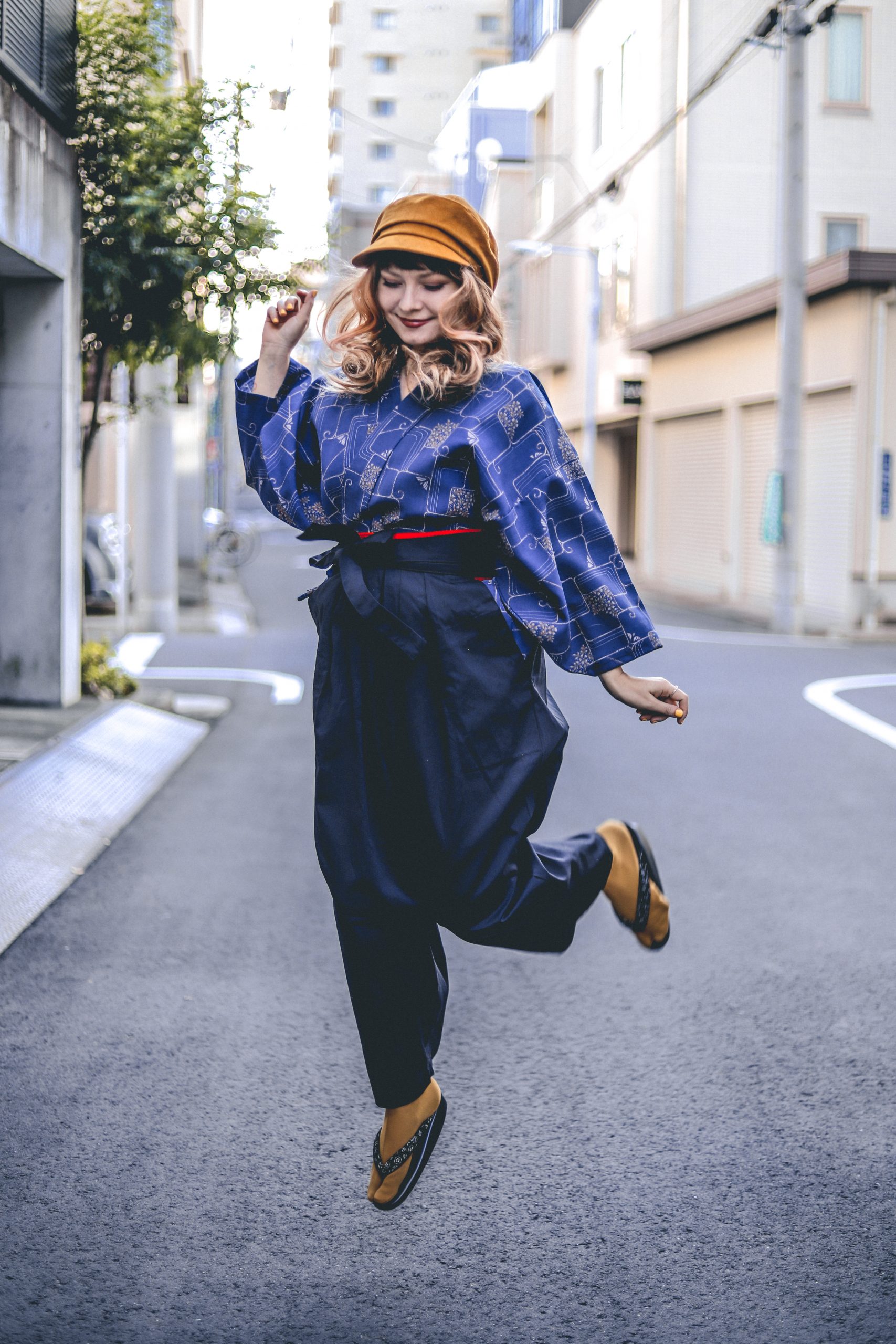
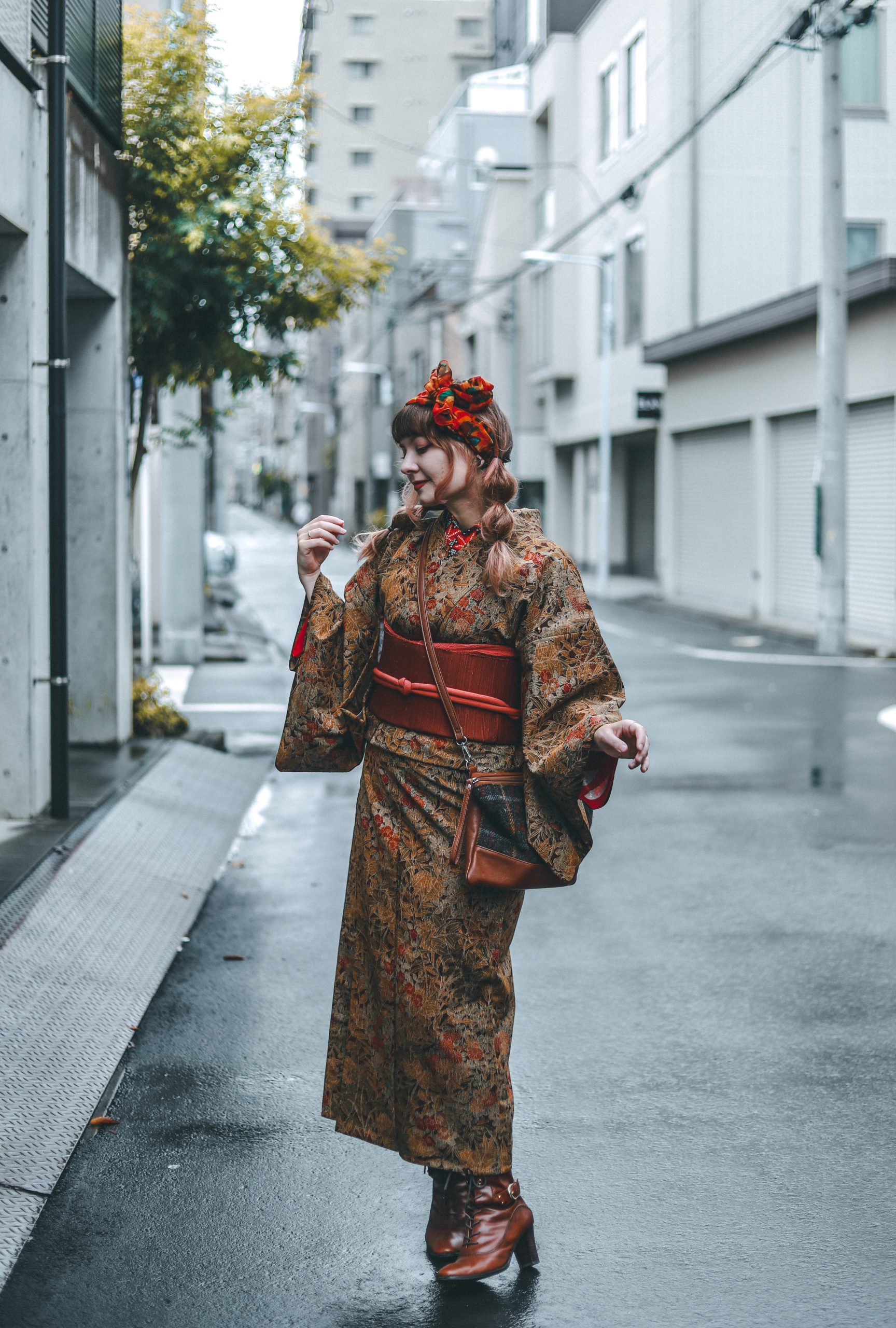
── That’s really really important! Such an amazing advice, thank you. I think it will help a lot of people!
I hope so. I wish somebody told me that: have a contract. Write it down. No matter how silly you think it may sound. There's no such thing as silly, you have to write it down. Honestly, I wish someone had told me.
── But it probably also comes from experience. You experience something you haven't even thought about and then you’re like “I wish I had put it in the contract! I didn't even think of this issue!”
Yes, yes, yes. A lot of things will come up, but you need to have a frame, the base, at the beginning and things will expand as you go.
── Do you have an example? Maybe something that happened and you were like “I wish I had put it in!“?
Yes, it’s a very simple one, that comes from something that I figured out at the very beginning. Do not put instagram filters on photos I take. Or any other filters or any other editing. That's a very very important thing for me or other photographers or just anyone who does visual creative work. That's a very simple example, but you have to write it down. You would think nobody would do that, why would they put a filter on it? They will. I assure you, it’s going to happen. And then you will think “Oh I wish I had said that“ (laughs). So that’s just one example.
── Maybe because I'm not a photographer, but I would never ever have thought of it. But now that you said it, it just makes total sense because it’s your brand, you want to present it YOUR way. You want to be in control.
Exactly. It misrepresents my work. I don't want my name under a photo that is edited with instagram filters. I don't want other people to think “oh this person edited it this way“, because I didn’t. So it’s very important. I think creative people would really understand what I mean. But essentially it's protecting your work.
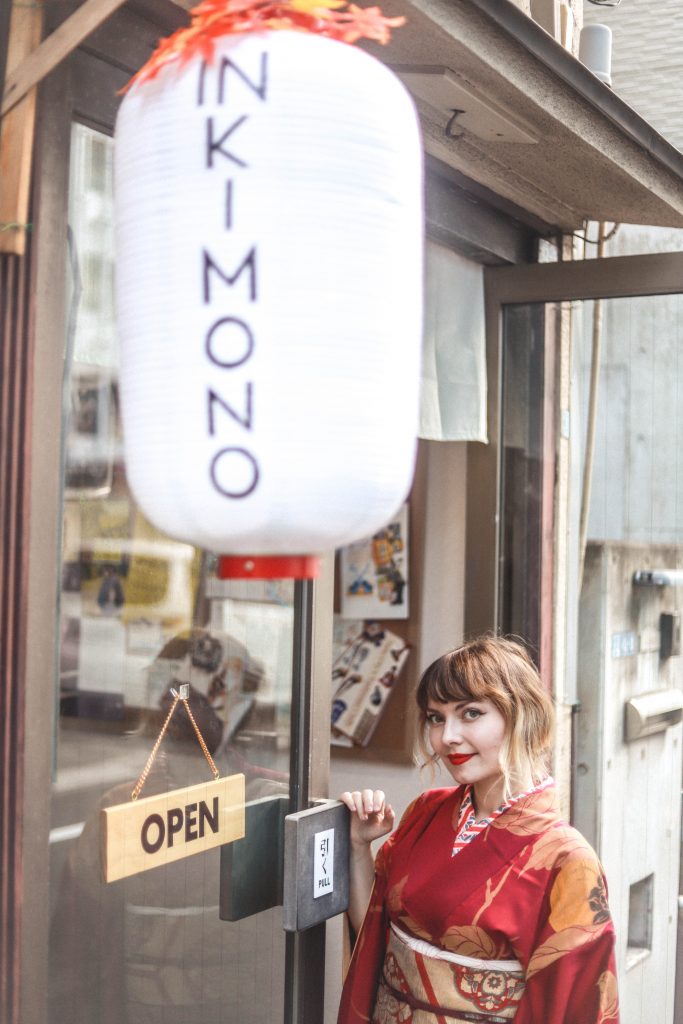
── That’s really cool, thank you for sharing. And the last question would be “what is your “why”?” Why do you do what you do?
Well, a very short answer if you don't mind, but freedom. That's it. Freedom. Complete freedom. I have creative freedom, I have freedom when it comes to my working time or my schedule or just everything! I am free, I have total freedom. And it really feels great, okay? (laughs) Even yesterday I was thinking that if I just had to wake up every morning and just put on a suit for example and just get on the train and sit at a desk for 10 hours, I couldn't do it. No, I couldn't do it. And I don't have to. I'm really happy that I have total freedom.
I do work a lot, because again, if you're a one person business you have to take care of a lot of things and many of them are boring like accounting or scheduling, organizing, cleaning… But it's for you. You're doing this for yourself only. And that gives you freedom. That's my “why”. This is why I do what I do. I mean, it gives me happiness, you know? I like what I do, I enjoy it a lot, I really do enjoy it. I am really happy doing what I'm doing. I like doing kimono, I like choosing different pieces, I like dressing people in kimono, I like doing makeovers. Like today we're doing hair like this, today we're doing that style. And then taking photos of them. I enjoy every part of what I'm doing. So happiness is obvious, but freedom is next.
── Amazing. Thank you so much. It’s amazing hearing that. We’re ending on a positive note (laughs)!
Yes. I'm glad. You know, it's not always pink and all great, but most of the time!
── That’s really cool. Thank you so much!
Text: Olga Mazlina
Photography: Stasia Matsumoto
For bookings with Stasia and more information on her service, check out the sites below!
INKIMONO INSTAGRAM
INKIMONO WEBSITE & BOOKING
